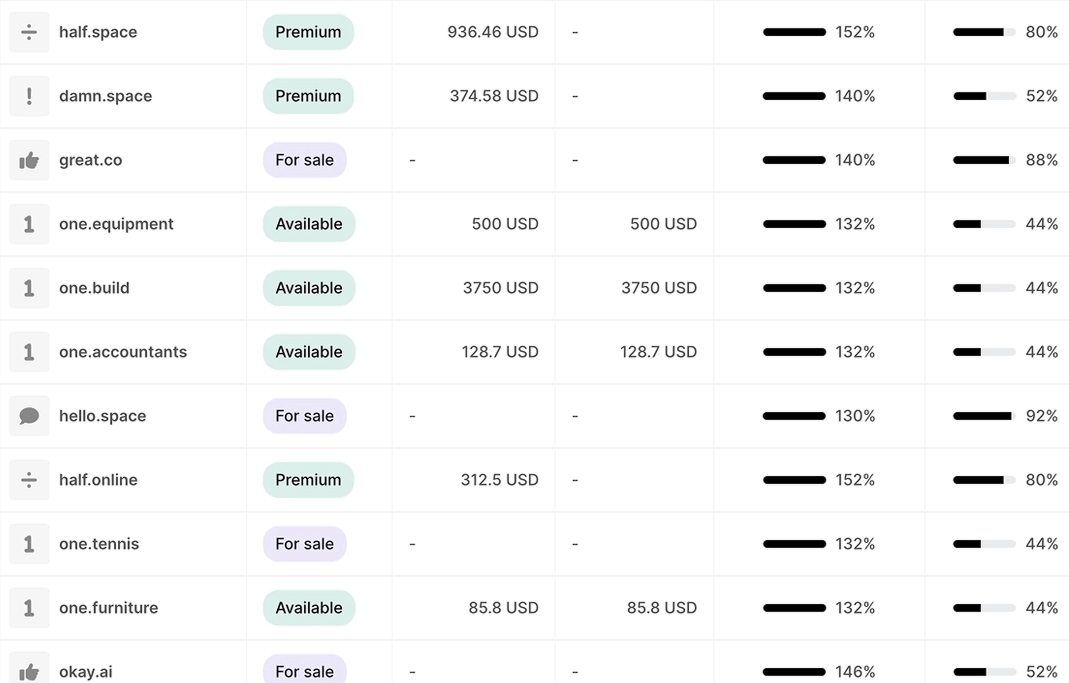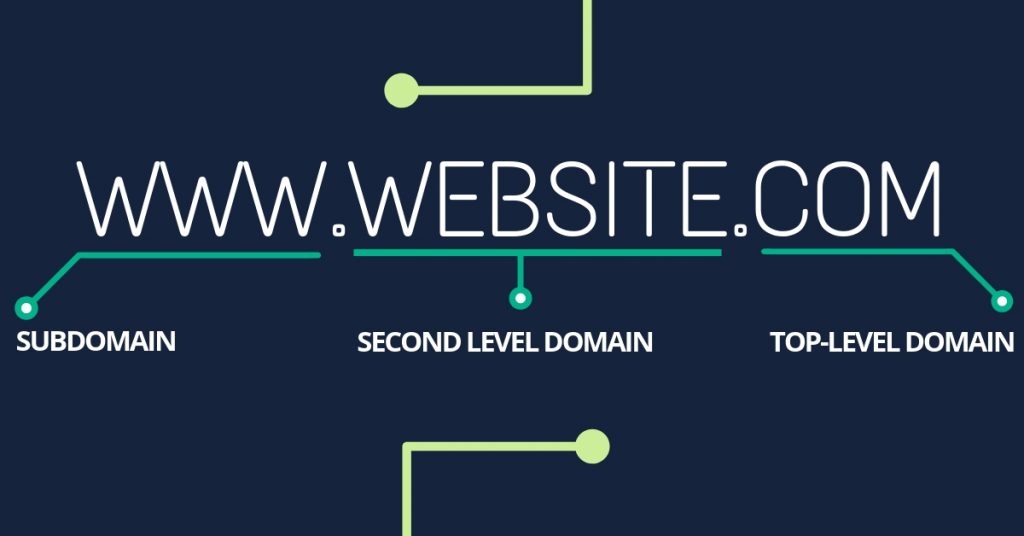How Your Domain Name Shapes SEO Success
Ever found yourself wondering if your domain name is holding your website back? You’re not alone. Picking the right domain name can feel overwhelming:
Should it be brandable, keyword-rich, or something entirely unique?
And let’s not forget the endless debates about how much domain names actually affect SEO.
Here’s the good news: understanding the basics of domain names and their relationship with SEO doesn’t have to be complicated.
Whether you’re launching a site or rethinking an existing one, this guide will give you actionable insights to make your domain name a powerful asset for your online success.
Let’s dive in! 🤗
- 1
Your Domain Name is your brand’s first impression online and a vital component of your SEO strategy. Choose wisely to ensure it’s memorable, relevant, and aligned with your goals.
- 2
Opt for recognizable and industry-specific TLDs to boost trust and rankings. Avoid spammy or untrustworthy extensions.
- 3
While relevant keywords can improve visibility, prioritize branding and user experience over keyword stuffing.
- 4
Build authority through quality backlinks, user-friendly design, and consistent content. Use tools like Moz and Ahrefs to monitor your progress.
- 5
Keep up with Google’s emphasis on content quality and user intent to maintain a competitive edge.
- 6
Strike a balance between a brandable name and one that supports your SEO efforts. Leverage tools like Unique Domains to find the perfect fit.
Key Takeaways
- Your Domain Name is Foundational:
It’s your brand’s first impression online and a vital component of your SEO strategy. Choose wisely to ensure it’s memorable, relevant, and aligned with your goals. - TLDs Matter for SEO and Credibility:
Opt for recognizable and industry-specific TLDs to boost trust and rankings. Avoid spammy or untrustworthy extensions. - Keywords Can Help, but Don’t Overdo It:
While relevant keywords can improve visibility, prioritize branding and user experience over keyword stuffing. - Domain Authority is Key to Success:
Build authority through quality backlinks, user-friendly design, and consistent content. Use tools like Moz and Ahrefs to monitor your progress. - Adapt to Search Engine Algorithms:
Keep up with Google’s emphasis on content quality and user intent to maintain a competitive edge. - Branding and SEO Can Coexist:
Strike a balance between a brandable name and one that supports your SEO efforts. Leverage tools like Unique Domains to find the perfect fit.

What is a Domain Name?
Let’s start with a simple question: what is a domain name? Think of it as your website's address on the internet—your virtual front door. Just as your home address guides people to your house, a domain name directs users to your website. It's the first impression you make online and the foundation of your digital identity.
Why Does This Matter?
Your domain name is more than just an address; it’s a statement. A great domain name can:
- Make your brand memorable. 💡
- Enhance credibility. 🏆
- Improve user experience by being easy to type and share. 👌
For instance, compare bestcoffeestore1234.com to BrewCafe.com. Which one would you trust more? Probably the latter, right? That’s the power of a strong domain name.
Choose a domain name that’s simple, relevant to your business, and easy to spell. Avoid numbers and hyphens, as they can confuse users.
The Anatomy of a Domain Name
At first glance, a domain name seems straightforward. But breaking it down reveals three key components, each playing a unique role. ✨
- Top-Level Domain (TLD):
This is the part of the domain that comes after the dot, like.com,.org, or.net. - General TLDs: Popular and widely recognized (e.g., .com). Learn more about domain extensions.
- Country Code TLDs (ccTLDs): Used for specific regions, like
.ukor.ca. - Industry-Specific TLDs: Tailored for niches, such as
.techor.travel.
- Second-Level Domain (SLD):
The main part of the domain, likeGoogleingoogle.com. It’s your brand’s name or key identifier. - Subdomains:
The prefix that comes before the SLD, such as “blog” in “blog.mywebsite.com.”

Diagram showing the breakdown of a domain name into TLD, SLD, and subdomain
Pairing the right TLD with your second-level domain creates a professional and trustworthy image.
SEO: What It Is and Why It Matters
Search Engine Optimization (SEO) might sound technical, but at its core, it’s about making your website visible to the right audience. When someone searches for a service you offer, you want your site to appear at the top of the results, right? That’s where SEO comes in 💪.
How Does SEO Work?
Search engines like Google analyze countless factors to rank websites. These include:
- Relevance of content to search queries.
- Backlink quality and quantity. Explore tools for backlink analysis.
- User experience, such as site speed and mobile friendliness. Improve your site performance with PageSpeed Insights.
Your domain name contributes to SEO in surprising ways. A short, descriptive domain can improve your click-through rate (CTR) because users trust what they recognize and understand. ✅
Optimize your domain name for SEO by using clear, relevant words. For example, a bakery in New York might use “NYC-Bakery.com” to attract local customers.
The Relationship Between Domain Names and SEO
Now, let’s connect the dots. How exactly does your domain name influence your SEO performance? It boils down to relevance, trustworthiness, and user behavior. 🚀
- Keywords in Domains:
Using relevant keywords (e.g., “SEOservices.com”) can signal to search engines what your site is about. However, avoid stuffing your domain with too many keywords—Google penalizes that. - Memorability and CTR:
A memorable domain name encourages more clicks, which signals to Google that your content is valuable. - Domain Age and Authority:
Older domains with consistent quality content often have higher authority, which can boost rankings. But don’t worry if you’re starting fresh—great content and quality backlinks can quickly build authority.
Exact match domains (EMDs) like “
BuyShoesOnline.com” used to dominate SEO, but Google now prioritizes user experience and content quality.

Historical Context
Back in the early 2000s, domain names played a disproportionate role in SEO. Websites with exact match domains often ranked higher, even if their content was mediocre. But as search engines evolved, so did their algorithms. 🔄
Today, Google prioritizes user intent and content quality over domain names. That’s not to say domains are irrelevant—they’re still a critical piece of your SEO puzzle.
For example, when Pinterest first launched, it leveraged a unique, memorable domain name that aligned with its brand identity. Over time, its focus on user engagement and high-quality content helped it dominate search results.
Focus on creating valuable content while ensuring your domain name complements your overall SEO strategy.
Branding vs. SEO in Domain Selection
Here’s a common dilemma: Should you prioritize branding or SEO when choosing a domain name? The answer is—it depends on your goals. 🤔
Branding-Focused Domains:
- Examples: “
Apple.com,” “Amazon.com.” - Benefits: Memorable, versatile, and great for long-term recognition.
- Drawback: May lack immediate SEO signals unless paired with strong content.
SEO-Focused Domains:
- Examples: “
AffordablePlumbing.com,” “BestHostingDeals.com.” - Benefits: Clear relevance to search queries.
- Drawback: Can feel generic and less brandable.
For most businesses, a hybrid approach works best. Consider Unique Domains, which offers a range of SEO-friendly names designed to align with your brand's vision and goals. 🌟
Best Practice: If you’re torn between branding and SEO, lean toward branding. A strong brand builds trust, which indirectly boosts your SEO.
Common Myths About Domain Names and SEO
Let’s debunk a few myths that still confuse many website owners:
- Longer domains rank better.
Shorter domains are easier to remember and share, which can indirectly improve SEO. - Keyword-stuffed domains guarantee top rankings.
Google values content quality over keyword-packed domains. - Domain registration length influences rankings.
There’s no evidence that registering a domain for 10 years boosts your SEO. - Exact match domains (EMDs) are a shortcut to top rankings.
While EMDs like "BuyCheapShoes.com" once had an advantage, Google’s algorithm updates now prioritize user intent and high-quality content over domain structure. - Switching domains kills all SEO progress.
With proper 301 redirects and a strategic migration plan, it’s possible to retain most of your rankings during a domain change. - Hyphens in domains improve SEO by separating keywords.
Hyphens often reduce credibility and make domains harder to remember. Users may also mistype your URL. - A .com domain always ranks better than other TLDs.
While .com is widely recognized and trusted, Google treats all TLDs equally. Focus on user trust and relevance instead. - Buying expired domains with backlinks guarantees SEO success.
Expired domains can come with spammy or irrelevant backlinks, which may harm your SEO rather than help it. Always vet domain history carefully. - The number of domains you own affects your SEO authority.
Google evaluates individual domains based on their content and backlinks, not the size of your domain portfolio. - Once ranked, your domain’s SEO success is permanent.
SEO requires consistent effort. Competitors, algorithm updates, and evolving user behavior can impact rankings over time.
SEO success is about balance—focus on user experience, content, and technical optimization.
Domain Authority Basics
Domain authority (DA) is a score that predicts how well your site will rank on search engines. Developed by Moz, it evaluates factors like:
- Backlink quality.
- Content relevance.
- Site structure.
While DA isn’t a direct Google ranking factor, it’s a useful benchmark for improving your SEO strategy. Sites with high DA often enjoy more organic traffic and better SERP visibility.
Use tools like Moz or Ahrefs to monitor your domain authority and identify areas for improvement.
Why Domain Names Matter to Google
Ever wondered why Google seems to favor some domains over others? It’s all about trust. Domains with clear, concise names are perceived as more authoritative and reliable.
For instance, “HealthyRecipes.com” is likely to attract more clicks than “RandomCookingSite123.com.” That user trust translates into higher click-through rates, which Google uses as a ranking signal.

Screenshot of Google search results with a well-structured domain name at the top for better click-through rates.
Overview of Search Engine Algorithms and Domain Relevance
Google’s algorithms have grown increasingly sophisticated. They evaluate:
- Relevance: Does your domain align with user intent?
- Trust: Does your domain signal credibility?
- Engagement: Are users clicking and staying on your site?
A domain name alone won’t guarantee SEO success, but when paired with valuable content and user-focused design, it can amplify your efforts.
Audit your current domain’s performance. Are users engaging with your site? If not, it might be time to reassess your strategy.

